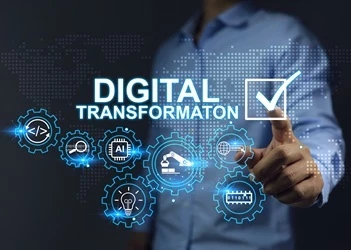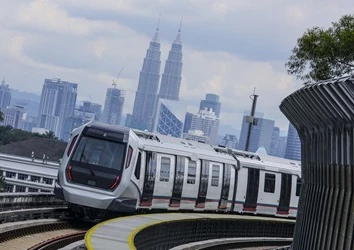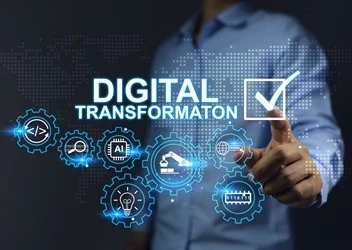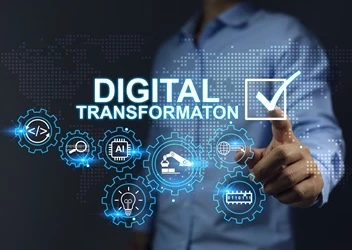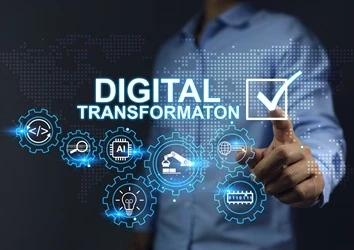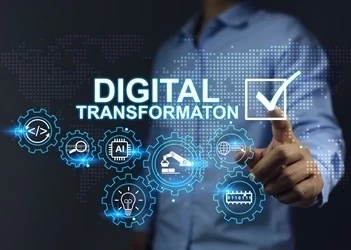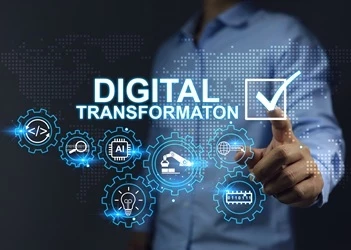APAC nations prioritize digital transformation to drive innovation
APAC businesses are leading the way in digital transformation, outpacing global peers in embracing digital tools
Add bookmark
Multiple countries in the Asia-Pacific (APAC) region are prioritizing digital transformation to drive innovation.
Vietnam launched a national framework to boost science and digital transformation with targets set through 2030. Meanwhile, South Korea placed digital transformation at the center of the APAC small and medium sized enterprise (SME) agenda with the launch of the 2025 APEC SME Innovation Forum in Jeju. Finally, the president of the Philippines stressed the practical benefits of digital transformation for citizens.
APAC businesses are leading the way in digital transformation, outpacing global peers in embracing digital tools. The Zoho Workplace Digital Transformation Survey 2025 found that the APAC region is ahead in several key areas – outperforming other regions in artificial intelligence (AI) adoption and structured collaboration processes.
The study, conducted across multiple industries and organization sizes, also revealed that APAC’s digital transformation maturity (66.35 percent) overtakes that of developed nations and the global average (62.3 percent).
Join the PEX Network community

Don't miss any news, updates or insider tips from PEX Network by getting them delivered to your inbox. Sign up to our newsletter and join our community of experts.
Learn MoreVietnam launches national digital transformation framework
The Ministry of Science and Technology of Vietnam launched a national framework to guide provinces and centrally run cities in advancing science, technology, innovation and digital transformation as key drivers of sustainable economic growth.
The framework outlines clear, measurable goals to be achieved by 20230. It projects that science, technology, innovation and digital transformation will collectively contribute 5 to 7 percent of the region's gross domestic product (GRDP). Specifically, science and technology are expected to contribute 1 to 1.5 percent, innovation 3 to 3.5 percent and digital transformation 1 to 2 percent.
The framework emphasizes the creation of local innovation ecosystems, including creative spaces, digital platforms and smart operation centers. Key reforms include treating enterprises as the central drivers of innovation, shifting state budget allocations towards output-based investment, expanding public–private partnerships and mobilizing resources for venture capital funds.
Join us at All Access: Revolution in Process Intelligence APAC 2025!
South Korea convenes 2025 APEC SME Innovation Forum
South Korea convened the APEC SME Innovation Forum 2025, gathering policymakers, global institutions and industry leaders from 21 economies to explore how digital tools, financial models and cross-border cooperation can redefine the growth trajectory of SMEs worldwide.
South Korea placed digital transformation at the center of the APAC SME agenda with the forum structured across four sessions:
- The current status and challenges of SME digital transformation.
- Financial innovation through policy finance and private-sector collaboration.
- The advancement of digital finance and SME innovation strategies.
- Cooperative pathways among APEC member economies.
Key speakers included Vorapoj Prasanpanich, deputy director-general of Thailand’s Office of SME Promotion, Zaki Khoury, senior digital development specialist at the World Bank, Professor Cho Hang-jung from KAIST’s School of Management of Technology and Choi Sung-wook, CEO of cross-border payments firm Sentbe.
Register for All Access: AI in Business Transformation 2025!
Philippines president discusses digital transformation benefits
Philippines president Ferdinand R. Marcos Jr spoke about the practical benefits of digital transformation for citizens. The Philippines is pursuing a digital public infrastructure and digital economy.
The president highlighted the National Fiber Backbone (NFB) to provide 17 million Filipinos faster and more reliable internet access. The NFB is due for completion by 2028, spanning the archipelagic country. The Philippine Identification System, including the Digital National ID, was named as a way to make financial services more accessible.
Marcos also drew attention to the Free Wi-Fi for All program, which provides internet connection to all schools, complemented by the Bayanihan SIM Project, enabling students and teachers to access digital tools.
“For Filipinos, digital technology means shorter queues [and] faster transactions,” Marcos said. “It means ease in paying bills, renewing licenses and accessing government services.”
All Access: AI in Process Excellence 2026
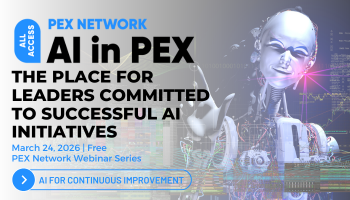
Don’t get left behind. Join us at All Access: AI in Process Excellence to learn from leading experts, thought leaders, and practitioners who are on the ground experimenting, researching, and learning how to best use AI. They will share their secrets with you for free. And you’ll have the opportunity to network with fellow professionals as we navigate this new world. Register now to save your spot.
Register Now
